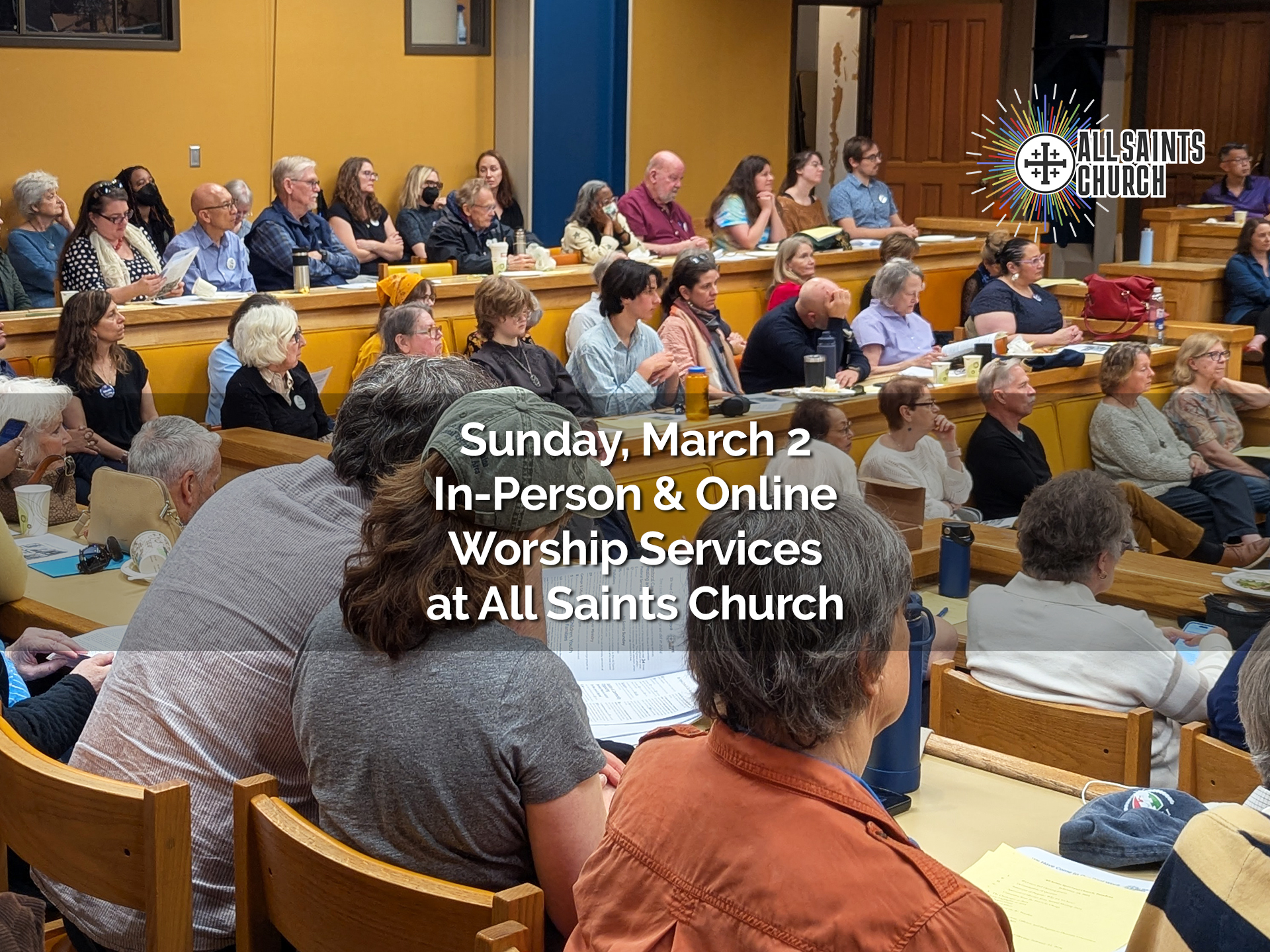This Saturday, November 2, we’ll mark “Día de los Muertos,” with a festive and colorful celebration.
 At 3:00 p.m., the art of local artists and musicians will be exhibited on the quad lawn at the Celebración de Día de Muertos 2019 Festival and Art Exhibition, with a special dance performance by Xanath Dance Company.
At 3:00 p.m., the art of local artists and musicians will be exhibited on the quad lawn at the Celebración de Día de Muertos 2019 Festival and Art Exhibition, with a special dance performance by Xanath Dance Company.
And at 6:00 we will celebrate Día de Los Santos y Fieles Difuntos with a service in the church. Come and meet new All Saints priest Alfredo Feregrino, who will preside at this bilingual Spanish/English service. A pan de muerto and hot chocolate gathering will follow on the lawn. All are invited to come and celebrate!
Here is an article by Alfredo Feregrino from the November 2019 issue of Saints Alive:
Reflection: Día de Los Santos y Fieles Difuntos
As we celebrate in this month the Faithful Departed on Saturday, November 2, I would like to offer a short reflection from my own cultural and theological perspective.
I believe that death is just the beginning. Death is a transition. Death is just the ticket into a great mystery. I am not afraid thinking about it. I also believe as Parker Palmer points out in his book “Let your Life Speak,” that death and life are not opposites; they are held together in a paradox of an eternal dynamic cycle in which all life participates.
The conversation about death and dying is a topic that few of us are willing to enter into and explore. I do not know anyone willing to volunteer to experience death. Just the thought of death raises huge fears and unanswerable questions within us. This is an idea that gives us butterflies in the stomach.
But I believe it deserves our attention and we need to treat it with more respect. We may or may not understand the process of death as a peaceful transition from this life to the next. It may be that we do not understand this process at all. Richard Groves, in his book “The American Book of Dying” points out that the western perspective of death and dying is the direct result of a medical model that considers death to be the enemy and that our unqualified confidence in science creates the illusion that death is optional — so we don’t have to deal with it at all.
Culturally, I have learned since I was a child that the symbol of death or “la muerte” is something we need to laugh about. Why? We just can’t help but make fun of it. I guess this influence comes from the pre-Hispanic Mexico which, compared to the western perspective of death and dying, is based on a completely different set of cultural understandings.
I identify myself with the contemporary image and view of the death from our Mexican writer and Nobel Laureate Octavio Paz who says: “Death lacks meaning for the modern Mexican… the word death is not pronounced in New York, Paris or London because it burns the lips. The Mexican, in contrast, is familiar with death, jokes about it, caresses it, sleeps with it, celebrates it…. he looks at it face to face with impatience, disdain and irony.”
I resonate also with one of our popular songs from the time of the revolution attributed to Poncho Villa that states with bravado: “si me han de matar mañana, que me maten de una vez/ If they are going to kill me tomorrow, then they might as well kill me right now instead”. In classic Mexican style, he is showing that death has no influence over him, that he is not afraid of dying.
This is pretty much an accurate description of the cultural view of death that I grew up with in Mexico City. This is basically what I believe.
Then, the question that arises is: once I am aware of my cultural perspective, how do I embrace this view while also reflecting on the Christian stories in the Scriptures?
The story of Lazarus of Bethany as described in the Gospel of John comes to my mind.
Jesus here breaks the power of death, ordering Lazarus to “Come out.” We can speak of many interpretations about death in this passage but if we analyze the story literally, Lazarus’ death and resurrection is left as a mystery.
Each big change in our lives is a kind of death, like the change of seasons it is inevitable; certain things come to an end and this can feel very final, but it is not. If only we could learn to see it differently.
“Death is not the end, it is just the beginning.” I see Día de Los Santos y Fieles Difuntos as a celebration of our eternal unity. This is a day when we are together, celebrating, remembering, and loving each other, the dead are alive and the cycle begins again.



